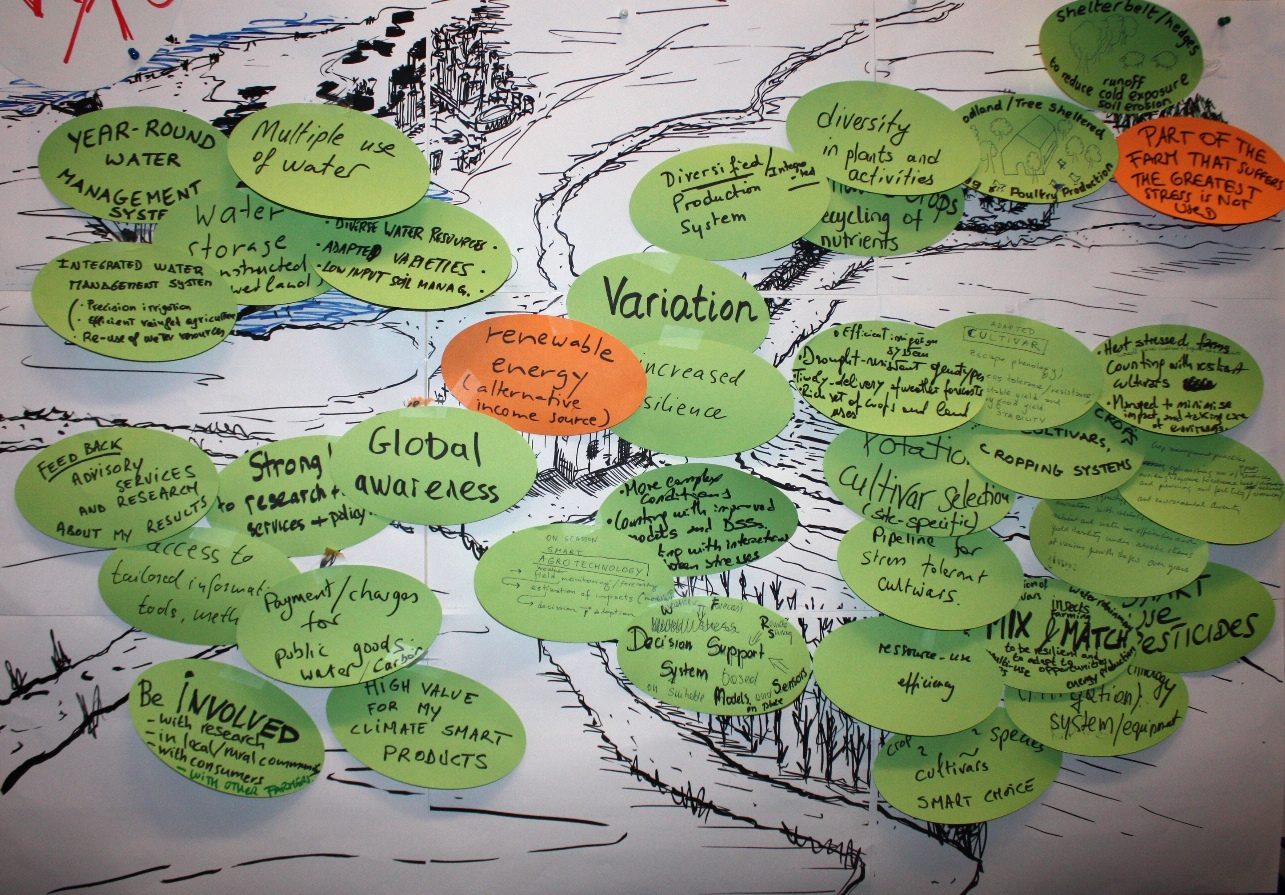Draw me climate-smart farms

Related topics
Agriculture & Forestry Environment & climate action EU countries Belgium Food security, sustainable agriculture and forestry, maritime and martime inland water research and bio-economy Climate action, environment, resource efficiency and raw materialsdate: 18/02/2015
Contact: Gaëtan DUBOIS
Agriculture will be among the sectors most severely hit by the consequences of climate change. Droughts, floods, heat waves, or even just minor changes in environmental conditions or new diseases will impact the availability and quality of our food supplies. At the same time, agriculture, forestry and other land uses are the second largest contributors to climate change globally. How can we increase the resilience of our farming systems towards upcoming changes while lowering the climate impact of agriculture? And how can research and innovation help?
To address these questions, the European Commission Directorate general for Agriculture and rural development, in collaboration with Directorates in charge of Research and innovation, Climate action and the Joint research Centre organised a research workshop on 'climate-smart agriculture' on 10 and 11th of February in Brussels. The workshop assembled around 65 participants from the research community, stakeholders' organisations and international institutions and networks.
The objective was to identify research gaps and prioritise research needs regarding agriculture in relation to climate change. The opening session provided the audience with a variety of presentations (see infra). After that, participants worked in parallel sessions on:
- Carbon cycle,
- Nitrogen cycle and
- Water and abiotic stresses.
A full day of intensive discussions brought very useful inputs, including three descriptions of what a climate-smart farm would be from the point of view of carbon, nitrogen or water and abiotic stresses. These inputs will be compiled in a report and will serve the further programming of Horizon 2020.
Presentations from the introductive plenary session are available below:
Setting the scene:
- Impacts of Agriculture on Climate Change - F. Tubiello - IPCC WG III / FAO
- Impacts of Climate Change on Agriculture - J.-F. Soussana - IPCC WG II / FACCE - INRA
Overview on past agriculture and climate change research activities:
- FP7 and H2020: societal challenge 2 - M. Burioni, DG RTD
- FP7 and H2020: societal challenge 5 - A. Kentarchos, DG RTD
- Joint Research Centre activities - A. Leip, S. Niemeyer, JRC
Policy needs:
- Climate Change and policy needs for research - G. Tsouris, DG CLIMA
